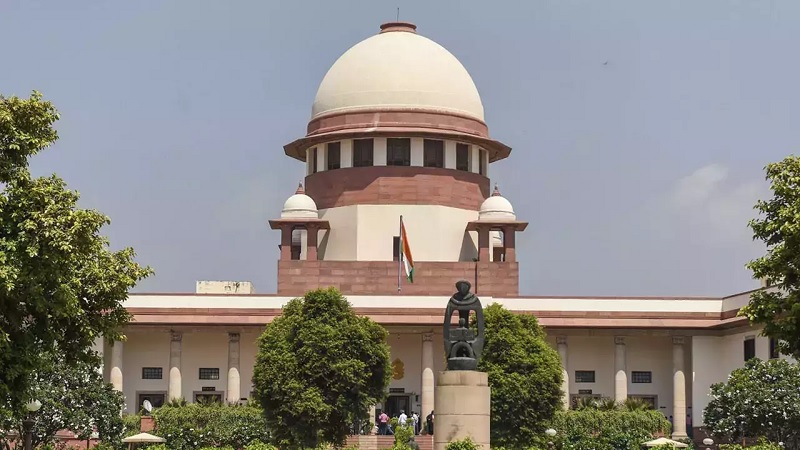
The Supreme Court on Monday, December 5, again expressed a view on religious conversion in the guise of charity, stating that the intention of persons offering such charity will have to be examined in such cases reported Bar and Bench [Ashwini Kumar Upadhay vs Union of India and ors].
A bench of Justices MR Shah and CT Ravikumar also remarked that those in India have to act as per its “culture and Constitution”.
Without any hesitation, therefore, rejected the objections raised against the maintainability of a public interest litigation (PIL) petition seeking steps against forced religious conversion.
“We are not here to see who is right or wrong, but to set things right. If someone is offering charity to convert then need to consider their intention. Do not take it as adversarial. It is a very serious issue. When everyone is in India, they have to act as per the culture of India,” Justice Shah remarked.
He told the counsel objecting to the plea’s maintainability, to not be technical, and even handed over a copy of the pleadings when it was argued that substantial material was not put on record.The matter will now be heard on December 12 for final disposal, by when the Union government was directed to file a further counter-affidavit after getting information from States about their anti-conversion laws.
The plea by BJP leader and advocate Ashwini Upadhyay has sought urgent and stringent steps to tackle “forceful religious conversions.” The public interest litigation (PIL) petition has claimed that fraudulent and deceitful religious conversion is rampant across the country, and that the Central government has failed to control its menace.
During an earlier hearing in the case, the top court had observed that forceful religious conversion is a serious issue that “threatens national security” and citizens’ freedom of conscience.
The fundamental right to practice and propagate any religion under the Constitution does not include any fundamental right to convert people, the Central government had told the Supreme Court in an affidavit filed last Monday.
The word ‘propagate’ used in Article 25 of the Constitution does not include within its ambit the right to convert, and the decision in Reverend Stainislaus makes clear that forced conversions impinge on a citizen’s right to freedom of conscience, it was submitted.
At today’s hearing, Solicitor General (SG) Tushar Mehta said that the Union government has collected data from States. “It is the statutory regime will determine whether person is converting due to some food etc, or any fundamental change in belief,” the SG argued.
Senior Advocate Arvind Datar, appearing for Upadhyay, said that those States that want to respond should be allowed to, but directions can be issued without waiting for everyone’s response.
“That is why we did not issue notice, since we did not want to delay the matter. Otherwise some State will ask for time,” Justice Shah responded.
Senior Counsel Raju Ramachandran and CU Singh, appearing for a priest and a rationalist organisation respectively, sought impleadment in the matter pointed out that multiple similar pleas by Upadhyay had been withdrawn after arguments.”This plea is based on hyperbole. [There is] No material at all,” it was argued. CU Singh had pointed ou how Upadhayay had filed four
Justice Shah then said the top court was the final disposal stage in the matter, and would not hear on maintainability. The counsel were, however, allowed to assist the Court. Senior Advocate Sanjay Hedge appeared for the Chhattisgarh Christian Forum.
Related:
Over 300 attacks on Christians reported this year, over 2000 women, Adivasis and Dalits injured
Survey of Churches, anti conversion laws only empower radical mobs: Archbishop Peter Machado
Hate watch: Christians attacked during Sunday mass in Chhattisgarh; 9 hospitalised
No coercive action against voluntary religious conversion: MP High Court
India has chosen a path of exclusion and persecution for religious minorities: CMRI report